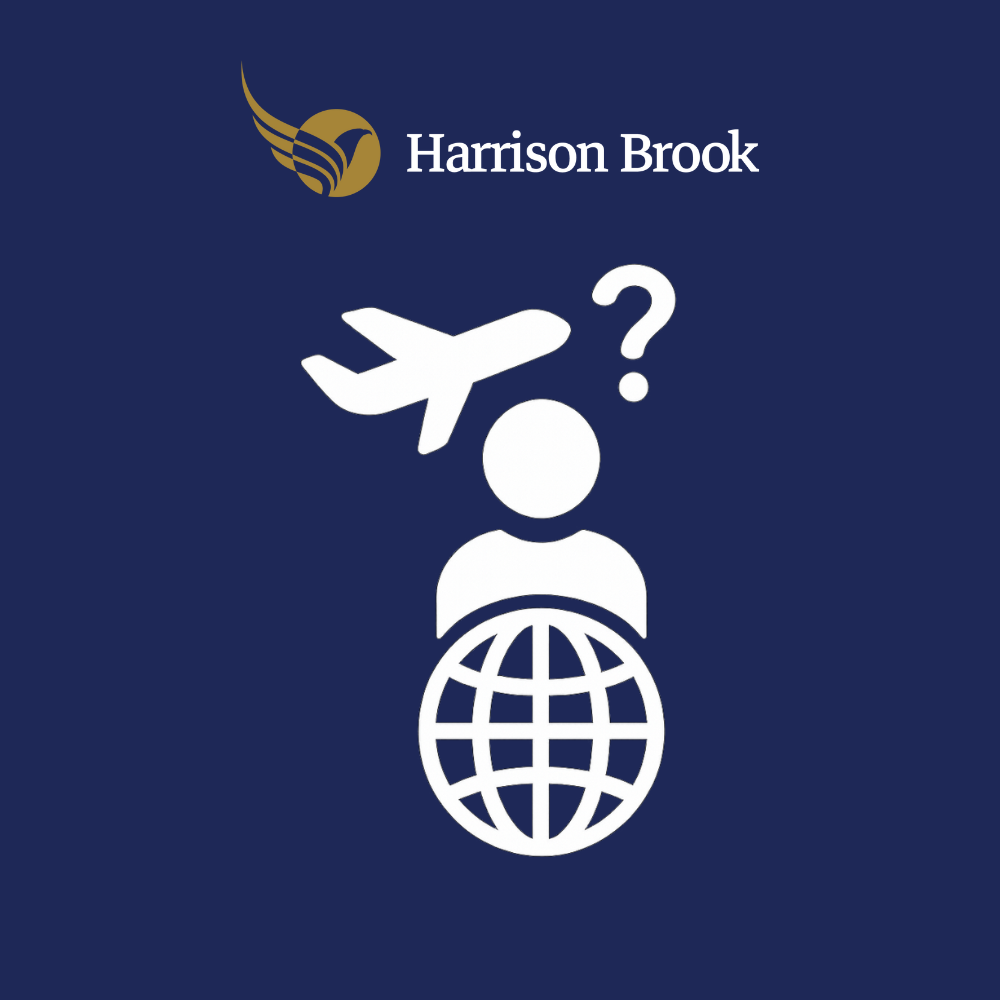
Relocating abroad can be one of the most exciting chapters in your life. Whether you are chasing a better work-life balance, a lower cost of living, or a new cultural adventure, planning your move overseas as an American expat requires careful thought and preparation. From choosing the right country to understanding visa requirements, taxes, and finances, this guide will help you navigate every step.
US expats often consider a variety of other countries for relocation, each presenting unique challenges and opportunities when it comes to taxes, healthcare, and lifestyle.
Introduction to Life Abroad
Moving abroad to a foreign country is more than just a change of address—it’s the start of a new life filled with adventure, growth, and discovery. For US citizens, living abroad opens the door to new cultures, perspectives, and opportunities that can enrich both your personal and professional journey. However, making the leap to a new country also means navigating a host of practical considerations, from understanding complex tax rules and double taxation agreements to securing the right international health insurance. Whether you’re moving overseas for work, retirement, or simply a change of scenery, careful planning is essential to ensure a smooth transition and make expat life easier. In this guide, we’ll walk you through the key steps to help you thrive in your destination country, so you can focus on enjoying your new adventure and building a fulfilling life abroad.
1. Deciding Where to Move as an American Expat
Before packing your bags, decide which country aligns with your lifestyle, budget, and long-term goals. Some of the best countries for American expats to move to include:
- Portugal – Known for its sunny weather, affordable cost of living, and expat-friendly visa options.
- Spain – Ideal for retirees and remote workers seeking Mediterranean living.
- France – Offers rich culture, excellent healthcare, and growing expat communities in cities like Paris, Lyon, and Nice.
- Australia – Great for English speakers who want a familiar language and high quality of life.
- Thailand – Popular for digital nomads and retirees due to low living costs and warm climate.
When comparing destinations, consider language, healthcare access, visa regulations, and the ease of integrating into local culture. European countries, for example, often have different healthcare systems and insurance requirements for expats, with some offering public healthcare access while others may require private insurance.
Tip: Countries with strong expat infrastructures and English-speaking communities can make the transition smoother. Also, keep in mind that the US is one of the few countries that taxes its citizens on worldwide income, which is an important consideration when choosing a destination.
2. How to Prepare to Move to Another Country as an American
Preparation is key. A successful international relocation requires both financial and logistical planning.
Before you relocate, make sure to inform your family members about your new address and plans. Involving a trusted family member can also help with logistics, such as providing an address for banking purposes or assisting with pet care during the move.
a. Research Visa and Residency Options
Each country has different requirements for Americans. Determine if you will need a work visa, retirement visa, residency permit, or if you plan to start with a tourist visa or student visa. Some Americans begin their journey to live abroad on a tourist visa or student visa, then transition to permanent residency depending on their long-term plans. For example, France offers long-stay visas for Americans who can prove sufficient income. In many countries, securing a job offer can be a key step in obtaining a work permit or residency, especially if employer sponsorship is required. Understanding the pathways from temporary visas to permanent residency is essential for those planning to live abroad long-term.
b. Organize Your Finances Early
Notify your bank and credit card companies of your move. Open an international bank account if possible, and set up multi-currency access for convenience. Using an international bank can make it easier to manage your finances across borders and access funds while abroad. In addition to an international account, consider opening a local account in your new country, as this is often necessary for paying rent and managing daily expenses. You may also need to maintain a U.S. bank account for tax payments and Social Security deposits. Remember, as a U.S. citizen, you are required to report foreign financial accounts, such as through the FBAR, to remain compliant with U.S. regulations.
c. Review Your Tax Obligations
As an American citizen, you are taxed on worldwide income, which means you must navigate expat taxes and understand how your foreign earned income is taxed by the IRS. The IRS requires you to file even while living abroad, though treaties, the Foreign Earned Income Exclusion, and credits like the Foreign Tax Credit can help save money by reducing your liability. It is wise to consult a cross-border financial adviser who understands both U.S. and international tax systems.
d. Healthcare and International Health Insurance
Ensure you have international health coverage before you leave. Some countries require proof of insurance as part of the visa process. Review if your U.S. policy covers you overseas or consider switching to an expat policy. In some countries, expatriates may need to purchase private insurance if public health care is not available to non-residents. Even in countries where English is widely spoken, learning the local language can improve your access to health care and make daily interactions easier.
Preparing for Daily Life
Adjusting to daily life in a foreign country can be both exciting and challenging. One of the first things you’ll want to do after moving abroad is open a local bank account. Having a local bank account makes it much easier to pay rent, receive your salary, and handle everyday expenses in your new country. Depending on your situation, you may also need to apply for a digital nomad visa or a work permit, as many countries have their own rules for expats and remote workers. Understanding the cost of living in your host country is crucial, take time to research housing, food, transportation, and other essentials so you can create a realistic budget. Learning the local language, or at least practicing key phrases, will help you navigate daily life and connect with your new community. If you’re feeling overwhelmed, consider working with an expat lifestyle mentor who can offer guidance and support as you settle into your new routine. Embracing the local culture and customs will make your expat life easier and help you feel at home in your new destination.
3. Managing Your Money and Foreign Financial Accounts When Living Overseas
A common question is, how much money do I need to move abroad?The answer varies based on your destination, but you should budget for:
- Visa fees and legal paperwork
- Flights and initial accommodation
- Deposit for long-term housing
- Moving and shipping costs
- Emergency savings
When planning your move, also consider how much space you will have in your new home to help decide what belongings to bring or store.
As a rule, plan to have at least six months of living expenses saved before you relocate.
Working with a financial planner familiar with the needs of American expats can help you manage retirement savings and investments tax-efficiently while abroad.
4. How Americans Move to France
France remains one of the most desired destinations for American expats. To move to France as an American, you typically need to apply for a long-stay visa from a French consulate in the U.S. This visa allows residence for over 90 days and can be renewed annually. As part of the visa or residency application process, you will often need to provide a birth certificate as official proof of identity.
To qualify, you must show sufficient financial means, health insurance, and a clear background record. Once in France, you can apply for a carte de séjour (residency permit).
Many expats choose to buy or rent property. While buying is possible for non-EU citizens, most start by renting while they adjust to the French way of life. Deciding between renting and buying may depend on whether you plan to establish permanent residence in France or expect to relocate again in the future.
Understanding French taxation is essential, especially if you continue to hold assets or receive pensions from the U.S. A cross-border adviser can help you structure your finances efficiently and ensure compliance in both jurisdictions.
5. Is It Hard for Americans to Move to Another Country?
Relocating abroad as an American is entirely achievable but can be complex. The main challenges often include:
- Navigating visa bureaucracy
- Adjusting to cultural and language differences
- Managing double taxation
- Setting up international healthcare
- Accessing local financial services
It’s important to remember that laws and regulations in your new country may differ significantly from those in your own country, so careful research is essential. Many people who have moved abroad share that understanding these differences early on helped them successfully navigate the transition.
However, with expert guidance and early planning, these challenges are manageable. Many Americans have successfully built rewarding lives abroad.
6. Emotional and Practical Adjustments When Living Abroad
Beyond logistics, prepare emotionally. Moving abroad can be exciting but also isolating at times. Build connections through local expat groups, language classes, or volunteering. Keeping a routine and maintaining ties with your home country can make the transition easier, helping you balance new experiences with familiar comforts.
Expat Life and Career
Building a career as an expat comes with its own set of opportunities and challenges. Many countries are eager to attract remote workers and digital nomads, offering special digital nomad visas and incentives to make living overseas more accessible. If you’re seeking a job abroad, start by researching the job market in your destination country and understanding the requirements for obtaining a work permit. Be prepared to provide important documents such as birth certificates, bank statements, and proof of income as part of your visa application process. It’s also essential to consider the tax implications of working in a foreign country, US citizens are required to file income tax on their worldwide income, but you may be eligible for a foreign tax credit or benefit from tax treaties that help prevent double taxation. By staying informed about local regulations and preparing the necessary paperwork, you can make your transition into the workforce abroad as smooth as possible and fully enjoy the benefits of expat life.
7. Working with a Cross-Border Financial Adviser
One of the smartest steps you can take before moving abroad is to seek independent financial advice from a specialist who understands both U.S. and local regulations.
At Harrison Brook USA, we help American expats structure their pensions, investments, and insurance policies internationally. From International SIPPs to tax-efficient savings plans, we ensure your money works across borders.
We also work with a network of international tax advisers and lawyers, providing a fully coordinated approach.
A cross-border adviser can also provide guidance on setting up international phone plans and understanding the requirements for work permits in your destination country.
FAQs – How to Plan a Move Overseas as an American Expat
What is the easiest country for Americans to move to? Portugal and Mexico are among the easiest, with accessible visa programs and friendly expat communities.
How long does it take to prepare for an international move? Ideally, allow six to twelve months for visa applications, financial arrangements, and logistics.
Can I work abroad as an American? Yes, depending on your visa. Some countries require sponsorship, while others offer digital nomad or self-employment visas.
Is it worth it to move overseas? For many Americans, yes. A lower cost of living, cultural enrichment, and better work-life balance make it worthwhile.
Can Americans retire overseas? Absolutely. Countries like France, Portugal, and Spain are popular retirement destinations with excellent healthcare systems and expat-friendly tax treaties.
What are the benefits of learning a foreign language when moving abroad? Learning a foreign language can greatly enhance your employability, help you integrate into the local community, and provide a richer cultural experience in your new country.
How do I obtain a student visa to study abroad? To get a student visa, you typically need to provide proof of acceptance from an educational institution, show financial means to support yourself, and submit the required documentation as specified by the country where you plan to study.
Conclusion and Final Tips
Moving abroad to a foreign country is a life-changing experience that offers countless rewards, but it also demands careful planning and preparation. As a US citizen living abroad, it’s important to stay on top of your responsibilities, from understanding tax rules and securing international health insurance to managing your finances and ensuring you pay taxes on your worldwide income. Take the time to research your destination country, connect with local expat communities, and seek support when needed to make your expat life easier. Remember, living abroad is not just about adapting to a new environment, it’s about embracing new opportunities, caring for your well-being, and making the most of your new destination. With the right preparation and a positive outlook, you can thrive as a citizen living abroad and enjoy all the unique experiences that come with your international move.
Get in Touch
Thinking about taking your next step abroad and wondering about the financial advice aspect?
Speak with Harrison Brook USA today for tailored advice on how to structure your finances, pensions, and investments before your international move.
We help American expats live and invest globally with confidence.
Contact us here to schedule a free initial consultation.



